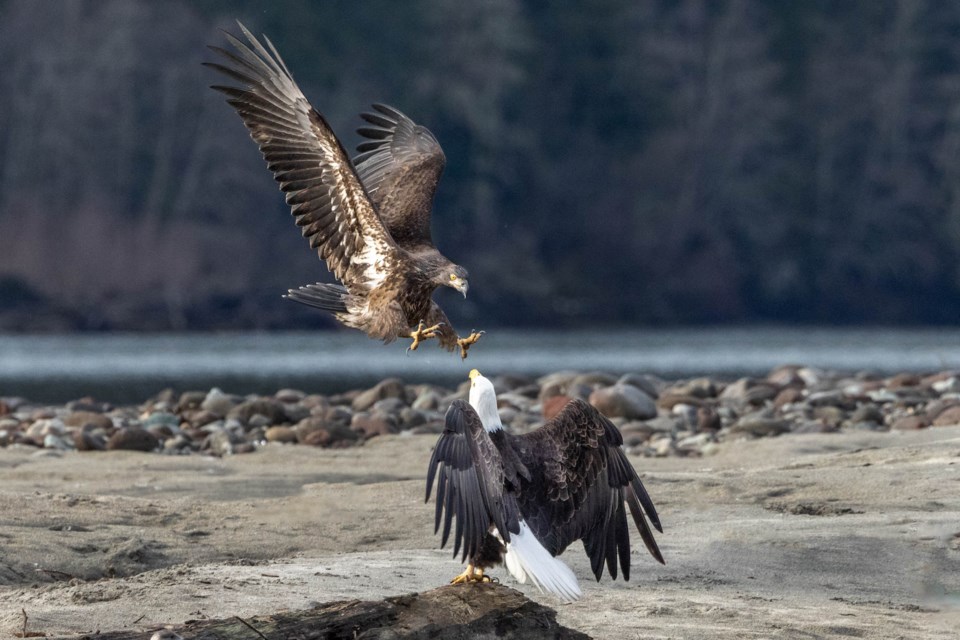Nine-hundred and sixteen eagles. That’s what we came away with at the end of the 2023 Brackendale Winter Eagle Count last week. From a record high of 3,769 in 1994, to a low of 411 in 2016, 916, seems, well, not bad. Every year we wonder what the count will be. We hope for more, but are happy if it’s not less. Less than what? More than what?
These numbers are simply a snapshot of a population of birds who fly from the north every winter, descending on Squamish to feed on dead salmon. We don’t really know all the variables that determine whether an eagle count will be “high” or not in any given year, but like so much in nature, it’s not just one thing.
We start with salmon: a good salmon run is, of course, the key to a high eagle count.
The success of this year’s salmon run started years ago. Salmon migrate from the ocean to lay eggs, or spawn, in Squamish’s rivers and tributaries. The adult salmon die here after this journey, and the young salmon — fry or smoults — migrate back to the ocean, only returning to spawn in Squamish two to five years later, depending on the species. How successfully they are able to navigate this journey can make or break a salmon run, and, to a significant extent, the eagle count.
Even a good salmon run doesn’t always mean good eagle numbers. Warm fall and early winter temperatures could mean salmon carcasses decompose quickly. High river levels can scour the shoreline, flushing dead salmon downstream, and heavy snow and thick ice might cover the salmon. Then there are challenges to actually counting the eagles: they may tuck deep into forested areas during cold, windy weather, or heavy rain, snow, and fog can impede counting, or restrict access to count areas.
And let’s not forget that we share these transient eagles. At any time, they can choose to visit other rivers offering a better salmon buffet. Despite all the factors that influence the eagle count, it is still an essential tool for monitoring the overwintering behaviour of eagles.
While we can never predict the success of an eagle count, there is no question that having such a large congregation of eagles spend their winters here is a unique privilege. Although we can’t control the weather or the salmon run, we can be the best hosts possible. The first winter of an eagle’s life is critical: 50% of juveniles do not survive their first year. Give them space; use binoculars or a zoom lens to get a closer look. Stay off gravel bars and leash your dogs. Move quietly in their midst. We can all help make Squamish a more inviting place for eagles to return to every winter.
Alison Wald is a director with the Squamish Environment Society. For more information about the annual eagle count, visit the Squamish Environment Society website: www.squamishenvironment.ca.




